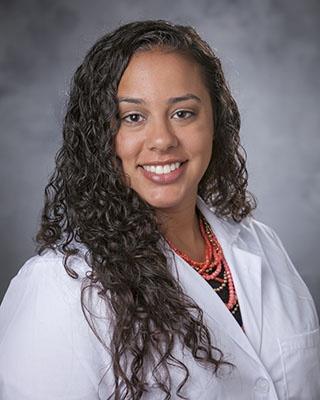Organized Medicine Heals Patients and Physicians
While in the emergency department a man was brought in by ambulance for agitation. After introducing myself, he told me his story. He witnessed his brother be shot to death by police. He now felt targeted, which is what prompted his visit to the emergency department. He was worried he was being followed. Were these paranoid delusions? During a brief encounter in the emergency department, it is hard to know for certain. However, after taking a thorough history from him, one thing was clear: This man was suffering from post-traumatic stress disorder following the violent death of his brother.
In my primary care clinic, a woman came in experiencing depression. She didn’t see the joy in life anymore. This was a chronic problem. However, over the past several days she became unable to care for herself. What was at the heart of this exacerbation of her depression? The one-year anniversary of her son’s death was that week. He was shot to death in a gang fight.
This is just a snapshot of the population I serve on a daily basis. It is possible to feel powerless as a physician in these situations; no amount of caring, communication or medicine can control the environment in which my patients live and what they experience every day. It is this sort of frustration that can contribute to burnout. However, through my involvement in organizations such as the American Academy of Family Physicians (AAFP), I am invigorated.
I became involved with local and national medical societies when I was elected to serve as medical student delegate to the New York Academy of Family Physicians, and I have remained involved in organized medicine ever since. Fast-forward four years later and I cannot believe that my year-long tenure as Resident Member of AAFP is coming to an end.
This past year has been a whirlwind learning experience. Apart from learning on a new level about how a membership organization and our health care system works, the role allowed me to care for my patients in a different way. One of my responsibilities as Resident Member of AAFP included visiting Capitol Hill to advocate for treating gun violence as a public health issue. Specifically, I met with legislators and discussed labeling violence caused by the use of guns as a national public health epidemic, funding appropriate research at the Centers for Disease Control and Prevention as part of the 2018 federal budget, and establishing constitutionally appropriate restrictions on the manufacturing and sale, for civilian use, of large-capacity magazines and firearms with features designed to increase their rapid and extended killing capacity. This is the sort of medicine many of my patients need, but physicians cannot provide it in the clinic or hospital.
Bridging the gap between the micro and macro levels of patient care and policy allows me to contribute to reform efforts and improve the quality of care for all people in this country. On a personal level, it gives me energy and motivation that I bring back with me to clinic. It allows me to care for my patients on a larger scale by influencing policy that could change lived experiences. I intend to contribute to the local and global community as a scholar, an activist, and as a public health professional to build influence beyond the confines of an exam room. I will provide comprehensive health care to underserved patients of all ages, but as family doctors we are uniquely positioned to help resolve health inequity, and that’s what I aspire to do.
Alexa Mieses is a third-year resident with the Duke Family Medicine Residency Program. Email alexa.mieses@duke.edu with questions.
Editor’s note: Duke Family Medicine residents guest blog every month. Blogs represent the opinion of the author, not the Duke Family Medicine Residency Program, the Department of Community and Family Medicine or Duke University.
